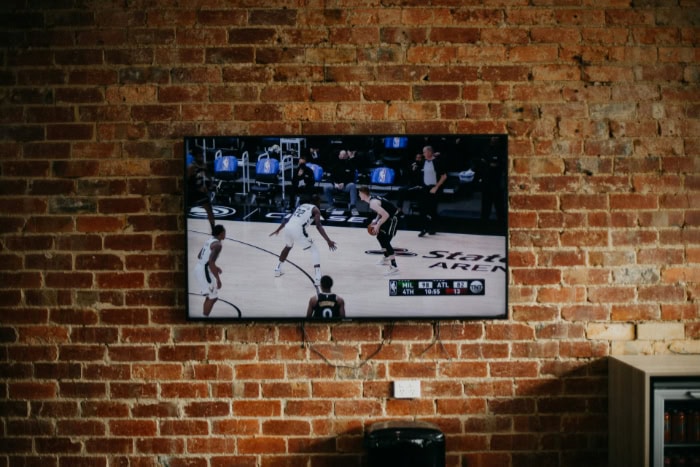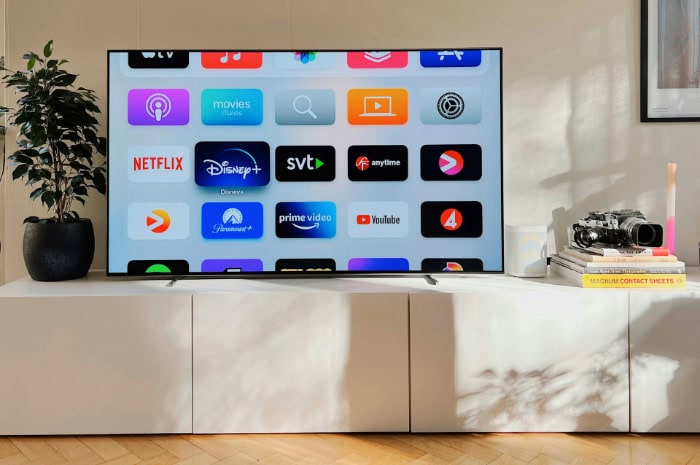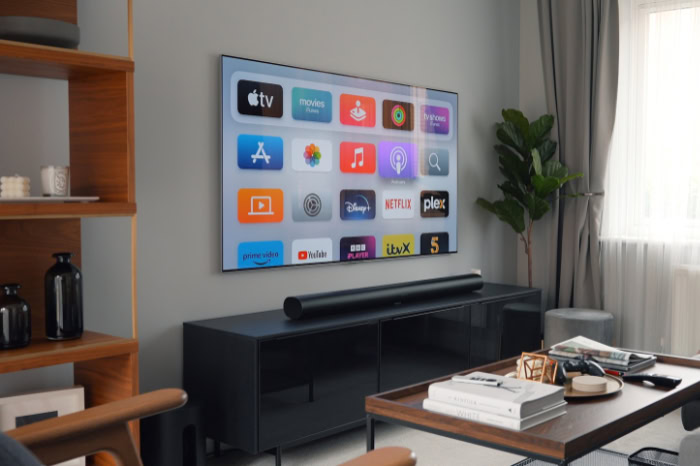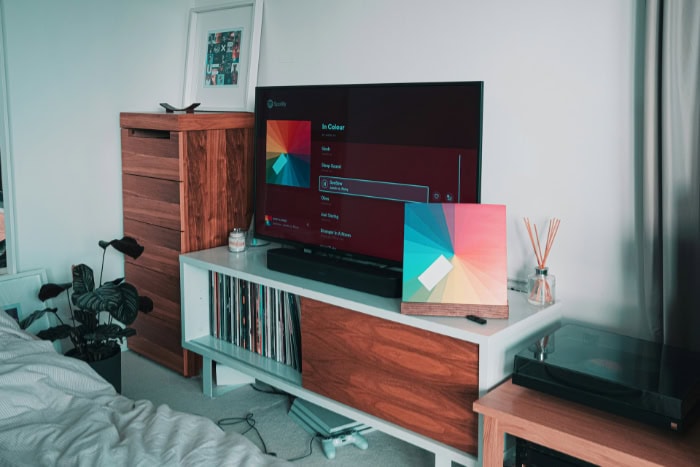Do You Need Internet for a Smart TV? Here’s the Answer

Unboxing a modern television often brings a moment of hesitation when the setup screen demands a Wi-Fi password. Many users worry their new purchase effectively becomes a paperweight without an active signal. The answer is a definitive no.
A Smart TV is a hybrid device consisting of a display panel and an internal streaming computer. While the internet is required to use apps like Netflix or YouTube, it has zero impact on the physical hardware.
Your TV will still power on, play audio, and display video from cable boxes or gaming consoles without issue. An internet connection unlocks specific software perks, but the television itself functions perfectly offline.
The Distinction Between Hardware and Software Functionality
Modern televisions are sophisticated machines that blend two distinct technologies into a single chassis. To comprehend why a Smart TV functions without the internet, it helps to view the device as two separate components glued together.
One part is the display hardware responsible for lighting up pixels and making sound. The other part is a small computer that runs apps and manages network data.
These two systems work in tandem but rely on different resources to operate.
Functioning As A Display Monitor
A Smart TV is simply a high-definition monitor equipped with a remote control and speakers. The display panel itself serves one purpose: to show images sent to it by an input source.
In the past, this input came exclusively from an antenna or a VCR. Today, the “Smart” interface is just one of many potential inputs.
Even if the internal computer cannot reach the servers required for Netflix or Hulu, the physical screen remains fully operational. It continues to accept raw video signals from other sources without hesitation.
Independent Operating Systems
The software that powers the smart interface runs independently from the basic electrical systems of the television. The processes that control power distribution, volume amplification, and input selection do not run through the web browser or the streaming apps.
When you press the power button, the electrical circuit completes itself physically. When you switch to HDMI 1, the TV reroutes the signal path.
These are local hardware commands. They do not require permission from a cloud server or an active IP address to execute.
Operational Reality
A disconnected Smart TV will behave exactly like a television from fifteen years ago. You can turn it on, adjust the brightness, change the volume, and cycle through the input list.
The user interface might display empty boxes where album art or movie posters usually appear, but the menus themselves will still load. The device will not lock you out of the settings menu or prevent you from calibrating the picture quality just because it lacks a Wi-Fi signal.
Native Features Available Offline

Removing the internet connection strips away the infinite library of streaming content, yet it leaves the television’s original purpose intact. The device remains a powerful hub for entertainment provided you have physical media or local signals to feed it.
Many users rarely connect their displays to the web, preferring the reliability and high bitrate of wired sources over compressed streams.
Over-The-Air Broadcasts
The oldest form of television delivery still works flawlessly on modern Smart TVs. Every television set includes a built-in tuner capable of interpreting radio frequency signals.
By connecting a standard coaxial antenna, you can scan for local digital channels. This grants access to news, sports, and network programming completely free of charge.
This system relies entirely on radio waves received by the hardware tuner, bypassing the operating system's need for data.
Physical Media And HDMI Inputs
The HDMI ports on the back of the unit are the most valuable assets for offline viewing. These ports act as direct pipelines for video and audio.
- Cable and Satellite: Set-top boxes provided by cable companies handle the signal decoding themselves and simply send the resulting video to the TV.
- Gaming Consoles: Devices like the PlayStation, Xbox, or Nintendo Switch will play disc-based games or installed digital games without any trouble.
- Disc Players: DVD, Blu-ray, and 4K UHD players provide higher visual fidelity than most streaming services and function entirely offline.
Audio Connectivity
High-quality sound does not depend on a network connection. Smart TVs output audio through optical cables or the HDMI ARC (Audio Return Channel) port.
When you connect a soundbar or a wired home theater system, the TV sends the audio data directly through the cable to the speakers. This “handshake” is physical and immediate.
While some advanced Wi-Fi-based multi-room audio systems might struggle, standard wired audio setups will function perfectly.
Inaccessible Smart Features

While the hardware persists, the “Smart” label loses its meaning the moment the connection drops. The television reverts to a passive display, and the specific features that differentiate it from a standard monitor will cease to function.
This limitation affects not only entertainment apps but also the convenient utilities that many users have grown accustomed to.
Loss Of Streaming Capabilities
The most obvious loss is the inability to access streaming platforms. Applications like Netflix, YouTube, Prime Video, and Hulu are merely portals to content stored on remote servers.
Without an internet connection, these apps cannot load libraries, retrieve video files, or even log in to a user profile. Clicking on these icons will typically result in an infinite loading circle or a “Network Error” message.
The icons remain on the screen, but they are effectively dead links.
Voice Command Limitations
Modern remote controls often feature microphones for voice assistants like Alexa, Google Assistant, or Siri. These tools do not process speech locally inside the television.
Instead, they record your voice, send the audio file to a cloud server for analysis, and wait for the server to send back a command. Without internet access, the microphone button becomes useless.
The TV cannot interpret requests to “change channel” or “search for action movies” because the brain required to understand those commands is unreachable.
Updates And Software Maintenance
A disconnected TV remains frozen in time. Manufacturers frequently release firmware updates to patch security vulnerabilities, improve interface speed, or fix bugs.
Without a connection, the TV cannot download these improvements. Furthermore, specific video files use compression standards called codecs.
Occasionally, a TV must verify a license or download a new codec to play a specific file format. An offline unit may refuse to play certain newer media files that a connected unit would handle easily.
Wireless Casting And Mirroring
Features such as Chromecast and Apple AirPlay rely on a local network to function. Even if you do not need the internet to mirror a photo from your phone to the TV, both devices must usually reside on the same Wi-Fi network to see each other.
Without a router bridging the connection, the TV cannot accept wireless video streams from smartphones or tablets. The “Cast” icon will simply disappear from your mobile apps.
Completing The Setup Process Without Wi-Fi

Unboxing a new television should be exciting, but many modern manufacturers dampen the experience with aggressive software prompts. Brands often design their operating systems to prioritize data collection and account creation.
As a result, users frequently encounter a setup screen that appears to demand a Wi-Fi password before allowing access to the main menu. While this design choice can be frustrating, most televisions offer specific pathways to bypass these digital roadblocks and access the device's basic functions.
Overcoming Mandatory Connection Prompts
Devices running on platforms like Roku TV or Amazon Fire TV are particularly insistent on establishing a network connection. During the initial boot sequence, the software might present the Wi-Fi selection screen as if it is the only option.
It is common for the “Skip” button to be hidden, greyed out, or tucked away in a corner of the screen. Manufacturers design the interface this way to encourage users to create accounts, which allows them to serve targeted advertisements and track viewing habits.
However, it is important to remember that the hardware does not physically require this connection to operate.
Using Basic Modes To Skip Account Creation
To circumvent these prompts, users must look for specific setup modes designed for offline use. Many models, including those running Google TV or LG’s webOS, offer a “Basic TV” or “Scan for Channels” option during the startup wizard.
Selecting this mode tells the operating system that you intend to use an antenna or external inputs rather than streaming apps. This choice strips away the smart interface elements and simply presents the user with a standard menu for inputs and picture settings.
If this option is not immediately visible, switching the TV to “Store Mode” can sometimes unlock the menu, though this may require adjusting picture settings later to remove retail usage demos.
Utilizing A Temporary Mobile Hotspot
In some rare instances, a television may absolutely refuse to progress past a firmware check without a signal. A simple workaround involves using a smartphone’s mobile hotspot capabilities.
By briefly connecting the TV to a mobile hotspot, you can satisfy the initial “handshake” requirement and allow the device to download critical Day-1 patches. Once the home screen loads, you can disconnect the Wi-Fi, turn off the hotspot, and use the television offline indefinitely.
This method ensures the TV has the latest factory drivers without permanently tethering it to a home network.
Viewing Content Offline

A Smart TV disconnected from the web is far from useless. In fact, it becomes a versatile display for high-quality local media.
Without the compression artifacts often found in streaming services, offline content often looks and sounds better than its online counterparts. By utilizing physical ports and external devices, users can enjoy a vast library of movies, music, and photos without using a single byte of internet data.
Wired Screen Mirroring With Adapters
Smartphones are capable of downloading movies and shows for offline viewing while on Wi-Fi, such as at a coffee shop or work. To get that content onto the big screen without casting, a simple HDMI adapter is the best solution.
For iPhones with a Lightning port or USB-C devices, a dedicated adapter can convert the phone’s charging port into an HDMI output. This creates a hardwired connection that mirrors exactly what is on the phone screen to the TV.
It is a reliable method that eliminates buffering and does not depend on a router.
Playing Media From USB Drives
Almost every modern Smart TV includes at least one USB port on the back or side panel. This port is not just for service technicians; it functions as a media reader.
Users can load flash drives or external hard drives with video files (such as MP4 or MKV), music tracks, and photo albums. When the drive is inserted, the TV’s built-in media player software usually launches automatically, allowing you to browse folders and play content directly.
This is a favorite method for users who maintain their own digital libraries of ripped DVDs or home videos.
Connecting A Laptop As A Source
The most straightforward way to make a dumb TV “smart” without the internet is to connect a laptop via HDMI. In this configuration, the television acts strictly as a secondary monitor.
This setup leverages the computer’s processing power to play any file format, run DVD software, or even play simple offline video games. Because the laptop handles the media processing, you do not need to worry about the TV’s compatibility with specific video codecs or file types.
If the laptop can play it, the TV can display it.
Conclusion
A Smart TV without an internet connection is essentially a high-quality “dumb” television. While removing the internet disables built-in apps and voice assistants, it has zero effect on the device’s primary job: displaying video and playing audio.
This setup is ideal for users in remote locations with poor connectivity, privacy-conscious individuals who wish to avoid data tracking, or those who simply prefer physical media over digital subscriptions. In the end, the internet is an optional accessory for these devices, not a biological necessity.
You can safely ignore the Wi-Fi prompt and still enjoy a premium viewing experience.


